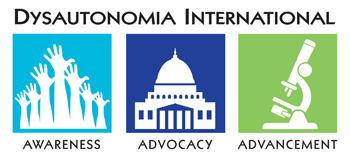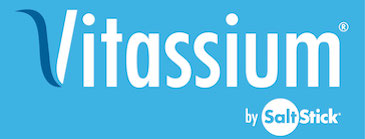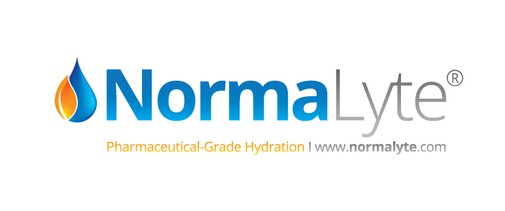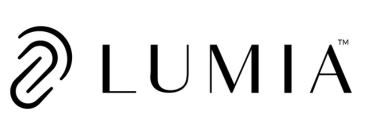
Dysautonomia International is pleased to announce the availability of up to $1,100,000 in research grants during our 2024 grant cycle. Dysautonomia International funds research with the goal of improving diagnosis, treatment and quality of life for people living with autonomic nervous system disorders. The funding opportunity is open to researchers in any country. Our grants are intended to be seed grants that help researchers explore innovative new ideas, and to acquire the preliminary data needed to obtain larger grants from the National Institutes of Health and other government funding agencies.
During the 2024 grant cycle, Dysautonomia International research grants will be available to study the following disorders:- postural orthostatic tachycardia syndrome
- neurocardiogenic/vasovagal syncope
- inappropriate sinus tachycardia
- orthostatic intolerance without tachycardia or hypotension
- autoimmune autonomic ganglionopathies
- autoimmune autonomic neuropathies
- idiopathic autonomic neuropathies (including small fiber neuropathies)
- gastrointestinal disorders due to autonomic dysfunction
- autonomic dysfunction in Long COVID
POTS RESEARCH FUNDING AVAILABLE
$1,000,000 is available from our POTS Research Fund. Applicants can request up to $100,000 per grant and there are no limits on how many applications a PI or institution can submit. Applications must be focused on one or more of the following POTS Research Fund 2024 priority areas:
1. Imaging studies that explore neurological, vascular, inflammatory, and orthopedic findings that may contribute to POTS symptoms, including but not limited to:- imaging of the sympathetic ganglia;
- imaging of the vagus nerve;
- imaging of cardiac and/or renal autonomic innervation;
- imaging of inflammatory markers;
- imaging of vascular malformations and related hemodynamics;
2. Identifying new POTS biomarkers or better explaining the role of existing POTS biomarkers, including but not limited to:- further exploration of the role of adrenergic, muscarinic, and angiotensin antibodies previously identified in a majority of POTS patients;
- exploring the role of sex hormones in contributing to the severity of symptoms in female and male POTS patients;
3. Neuropathology and other tissue pathology studies, including but not limited to:- autonomic and sensory ganglia pathology in POTS;
- studies exploring the mechanisms and pathology of small fiber neuropathy in POTS in the legs and other areas of the body;
- studies exploring the role of vasomotor neuropathy in POTS;
4. Studies exploring the safety and efficacy of new or existing pharmacological, device, surgical or dietary treatment approaches to POTS, including but not limited to:- studies exploring immune modulating therapies;
- studies exploring sympathetic and other ganglia blocks;
- studies exploring the use of medical marijuana and cannabis derivatives;
- studies exploring nutritional and dietary interventions;
5. Studies exploring biological mechanisms that may explain the relationships between POTS and its co-morbidities, including but not limited to:- Sjogren's disease and other autoimmune diseases;
- Ehlers-Danlos syndrome (EDS);
- cerebral spinal fluid leaks and/or abnormal cerebral spinal fluid pressures without a leak;
- Long COVID;
- Lyme disease;
- mast cell activation syndrome (MCAS);
- pediatric acute-onset neuropsychiatric syndrome (PANS)/pediatric acute-onset neuropsychiatric disorders associated with streptococcus (PANDAS)
- myalgic encephalomyelitis/chronic fatigue syndrome (ME/CFS);
6. The development of POTS research tools, including but not limited to:- outcome measures designed for use in POTS clinical trials;
7. Studies that document the lived experience of POTS patients, resulting in the publication of data needed to influence policy change, including:- studies addressing disparities in POTS clinical care or research, within the US and abroad;
- studies that assess the epidemiology, disease burden, economic impact, healthcare utlization, and other socio-economic impacts of POTS.
RESEARCH FUNDING FOR OTHER FORMS OF DYSAUTONOMIA
$100,000 is available from our Dysautonomia Research Fund, with grants capped at a maximum of $100,000 each. These applications must be focused on one or more of the following conditions:- neurocardiogenic/vasovagal syncope
- inappropriate sinus tachycardia
- orthostatic intolerance without tachycardia or hypotension
- autoimmune autonomic ganglionopathies
- autoimmune autonomic neuropathies
- idiopathic autonomic neuropathies (including small fiber neuropathies)
- gastrointestinal disorders due to autonomic dysfunction
- autonomic dysfunction in Long COVID
The research priority areas described in the POTS section above will be applied to these diagnoses as well.
THE APPLICATION PROCESS
The information below describes the two-stage application process for POTS Research Fund or Dysautonomia Research Fund applications. The first stage requires the submission of a Letter of Intent (LOI), providing basic information on the proposed project. In the second stage, selected applicants will be invited to submit a more comprehensive application. Detailed budget justifications and study protocol information will be required during the second stage of review.
WHO CAN APPLY?
Any investigator capable of conducting serious academic research can apply for a Dysautonomia International research grant, from any country. We encourage early career applicants to apply with appropriate supervision or collaboration with experienced researchers. All applicants must obtain Institutional Review Board approval, or its foreign equivalent, prior to funding being issued. All projects must be designed with the intent to publish the findings in a peer-reviewed journal. There is no limit to how many research grant proposals can come from one applicant or institution.
IMPORTANT DEADLINES
Letter of Intent Due: November 8, 2024
Applicants Notified of LOI Decision: November 10, 2024
Full Application Due from Invited Applicants: December 15, 2024
Grant Recipients to be Notified: on or about December 31, 2024
LETTER OF INTENT INSTRUCTIONS
Interested applicants should submit a Letter of Intent (LOI) on their institutional letterhead, on or before November 8, 2024, describing the proposed project via email to research@dysautonomiainternational.org. The LOI should be no more than TWO pages, inclusive of references and attachments. Late LOIs or LOIs that exceed the two-page limit will not be accepted. The LOI should explain:
- which autonomic disorder(s) the proposal is focused on
- the hypothesis and aim(s) of the study
- the type of testing/data collection proposed
- the number of disease subjects and controls involved
- the amount of funds requested from Dysautonomia International
- whether similar studies have already occurred
- Name and title of the applicant
THE REVIEW PROCESS
LOIs and full applications will be reviewed by our Board of Directors in consultation with members of our Medical Advisory Board, Patient & Caregiver Advisory Board, and independent experts for scientific merit, likelihood of success, meaningful impact on the lives of dysautonomia patients, and other factors. All reviewers have agreed to keep information learned during the review process strictly confidential using signed Confidentiality Agreements.
CONTACT INFORMATION
Please feel free to ask questions about the grants process before applying. We cannot advise on whether your application will be selected or not, but we can advise on whether your study idea/concept is responsive to the priority areas. Contact research@dysautonomiainternational.org or 631-202-1720.
DONATIONS WELCOME
Dysautonomia International is able to fund this important research through the generosity of many donors, large and small. If you would like to support our POTS Research Fund or Dysautonomia Research Fund, we invite you to contribute at CureDys.org or host an online fundraiser through Facebook or Instagram.
| | |




